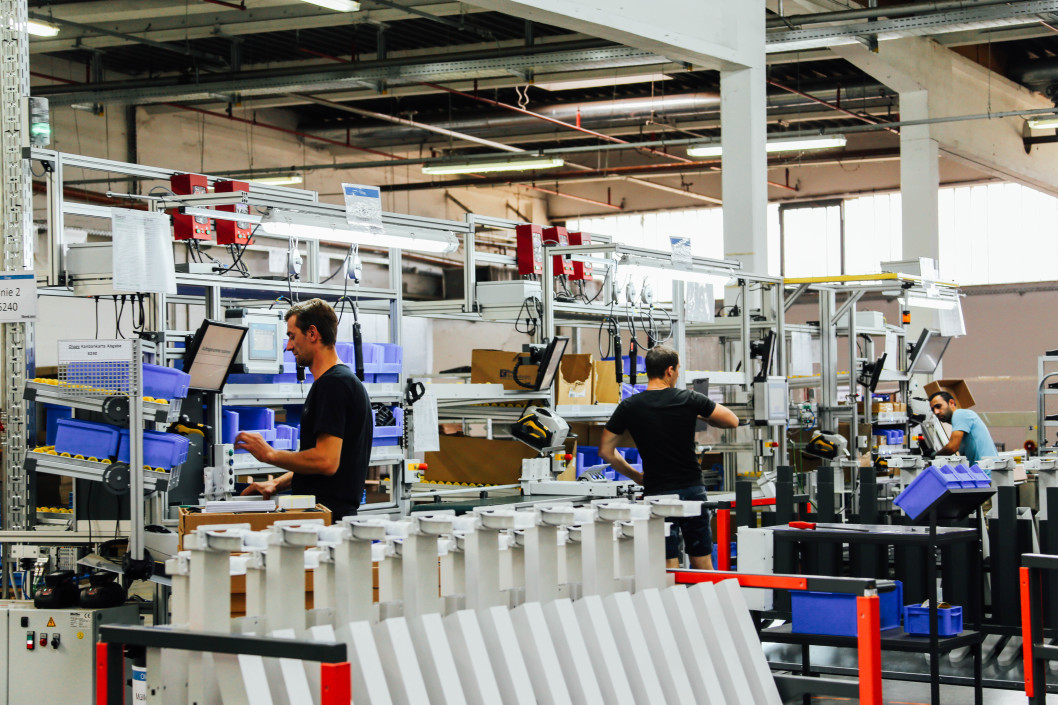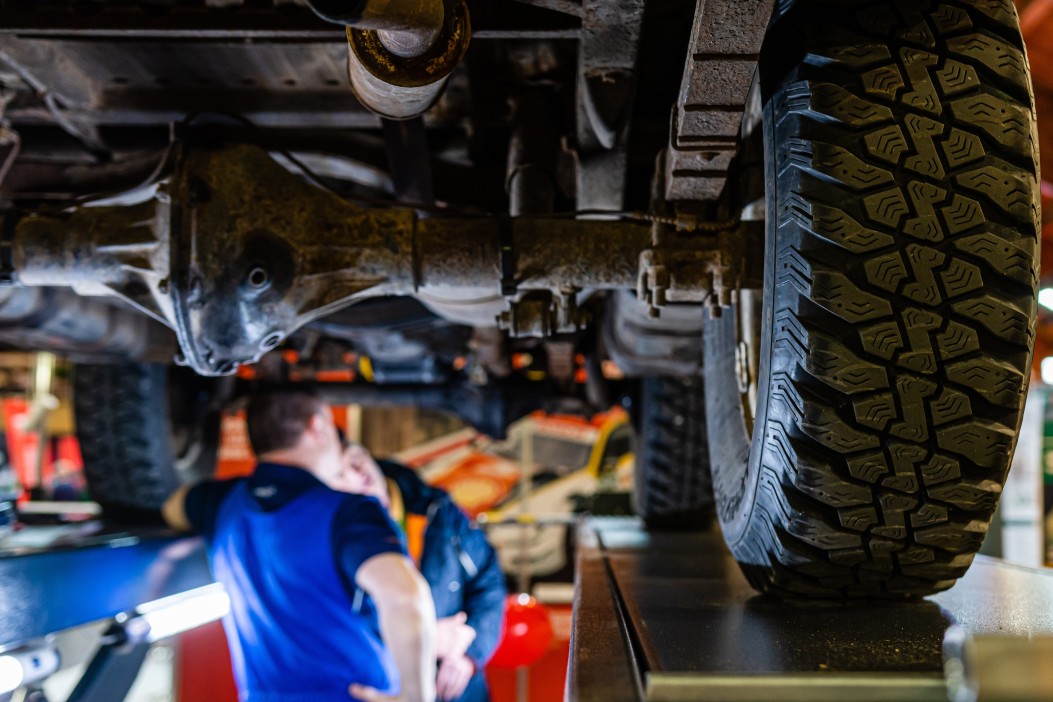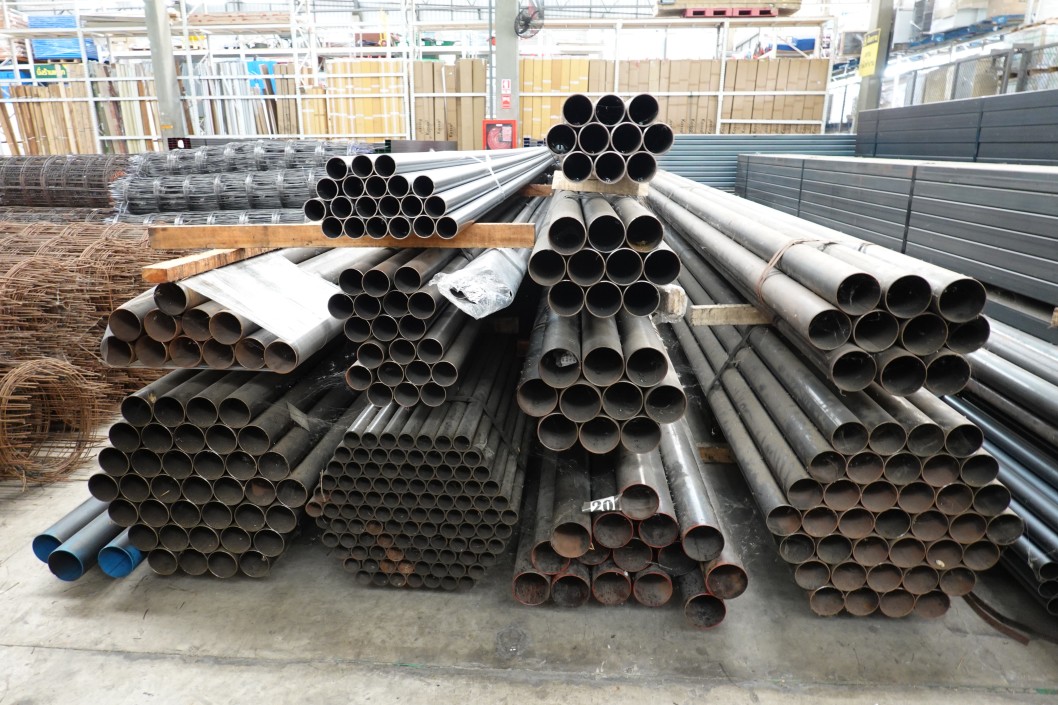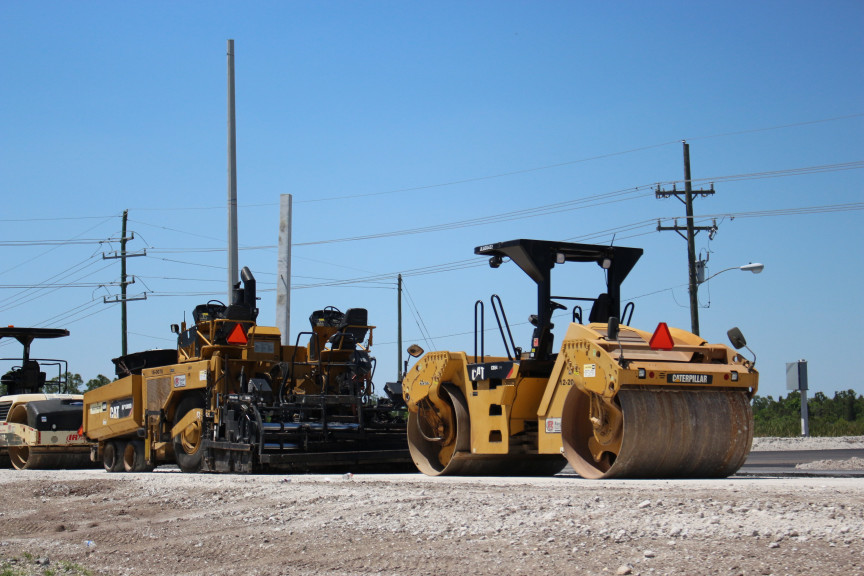Is Capital Goods A Good Career Path?

Are you looking for a career path that will allow you to make a lot of money while having fun? Do you enjoy working with your hands?
There are many great careers available in the world today. However, not every profession has the same job security as others. Some jobs require lots of training before you even get started. Others require years of experience before you can even begin earning a decent salary.
But what if you found a way to combine both worlds? What if you could work with your hands while making money? Well, that’s precisely what capital goods do.
Capital goods are products that are used to create something else. For example, a carpenter uses wood to build furniture. A baker uses flour to bake bread. And a plumber uses pipes to fix toilets.
The problem is that most people only see the result of these products. They never stop to consider how the product was made. But that doesn’t mean you can’t find a career combining your love of working with your hands and a high income.
Several capital goods careers pay well and offer a lot of job security. In this article, I’ll tell you everything you need to know about capital goods careers, including why they’re so lucrative, where to look for job opportunities, and answer the question, “is capital goods a good career path?.
What Are Capital Goods? Definition With Examples

A capital good is a durable good with specific technical characteristics that are used in the production of other goods or services. A capital good is a particular kind of economic good and tangible product.
A society acquires its capital goods by saving wealth which can then be invested in the means for producing them. They’re used to create other goods or services within a certain period.
Machinery, buildings, computers, or any other kind of equipment layout used in producing other products for sale are capital goods Ownership of the capital good can take place at any level, including individual, household, corporate, or government levels.
Anything used to produce capital goods (such as machinery) is also considered a capital asset.
Capital goods are one type of producer good, the others being land and labor. They’re also known collectively as “the primary factors of production.” This classification was first used during the classical economic period and has remained the dominant way of classifying things.
There are many definitions and descriptions of capital goods production in the literature. Capital goods are generally regarded as one-of-a-kind products that consist of many components, which are often expensive. They’re often used as manufacturing systems and services themselves. Examples of capital goods include hand tools, machines, data centers, oil rigs, semiconductor fabrication plants, and wind turbines. They produce their products in projects, with several companies collaborating in networks.
A capital good lifecycles typically consist of tendering, engineering, procurement, manufacturing, commissioning, maintenance of machinery, and sometimes decommissioning.
Why Become a Capital Goods Professional?

Capital goods professional works with companies that manufacture or produce products. They may work directly for these companies, or they may work for other businesses that supply the company. Becoming a capital goods professional might be suitable if you want a career where you can earn more money.
How to Become a Capital Goods Professional?

Step 1
The internet is full of information on different types of functions available. The first step is to find out what capital goods jobs are available. You can do this by searching online for your desired position.
It would be best if you also considered joining trade associations representing your industry. These organizations will help you get connected with people working in your area.
Step 2
Once you’ve found an exciting opening, it’s time to apply. If you don’t have experience in your chosen field, you may want to start by volunteering. Volunteering will give you valuable skills and knowledge. It will also help you build connections that could lead to future employment opportunities.
Step 3
Once you’ve been accepted into a training program, you’ll need to complete it. Completing the coursework will give you the knowledge necessary to enter the workforce.
Step 4
After completing your training, you’ll need to apply for capital goods jobs. There are various ways to go about finding jobs in capital goods. Some employers advertise their openings through newspapers, magazines, websites, social media platforms, etc. Others prefer to use recruitment agencies.
Some people choose to look for jobs through networking. Networking allows you to meet potential employers face-to-face. You can learn more about the company, its culture, and how well it fits your personality.
Step 5
Once you’ve landed a job, you’ll need to keep up with new developments within your industry. New technologies and innovations are constantly changing the landscape of your industry. You must stay abreast of changes to maintain your competitive edge.
What Are Industries In Capital Goods?

Capital goods sectors consist of various industries that help other businesses operate. As a result, these businesses produce products for the end consumer. This section shall focus mainly on some industries that make up the capital goods industry.
Chemicals Industry

Chemicals are used by many industries, including food processing, pharmaceuticals, cosmetics, electronics, and construction. They’re also used to produce plastics, rubber, paints, dyes, detergents, and lubricants.
Automotive Industry

The automotive industry consists of companies that manufacture cars, trucks, bikes, motorcycles, buses, trains, planes, boats, ships, and many other vehicles. These companies employ millions of people around the world. They provide jobs for workers who build the parts used to assemble automobiles.
Electronics Industry

As a manufacturing sector, The consumer electronic industry is one of the largest manufacturing industries in the world. It produces everything from computers and televisions to cell phones and automobiles.
Steel Industry

The steel industry comprises companies that manufacture steel products from raw materials such as steel scraps. These companies include mills, foundries, rolling mills, fabricators, and others. Some of these companies specialize in one type of metal, but many companies are generalists who can handle any metal.
Machinery industry

The machinery industry includes companies that manufacture vital equipment used by others. It includes manufacturers of automobiles, trucks, tractors, aircraft, ships, heavy equipment, farm equipment, construction vehicles, mining equipment, power generation equipment, and many other types of heavy machines.
Textile Industry

The textile industry produces textiles from cotton, wool, silk, linen, etc. It includes clothing, yarn, printing, dyeing, finishing, and garment manufacturing.
Apparel Industry

The apparel industry is a cornerstone of manufacturing clothes for men, women, children, babies, and pets. It’s an important industry because it employs hundreds of thousands of people. The apparel industry is known to be a part of the capital goods sector.
Construction Industry

The construction industry builds buildings, roads, bridges, tunnels, dams, skyscrapers, and much more. It employs millions of people worldwide.
Healthcare Industry

Healthcare is another primary industry in the United States. It includes hospitals, nursing homes, clinics, medical research centers, pharmacies, dental product & offices, veterinary practices, home health care agencies, and many others.
Food Processing Industry

The food processing industry processes foods such as meat, poultry, fish, dairy products, fruits, vegetables, nuts, grains, oils, sugar, spices,
Is capital goods a good career path? Jobs and employment

Several jobs are available in the capital goods sector, such as sales, manufacturing, distribution, and logistics. These positions require strong communication skills, analytical thinking, and problem-solving abilities. Here is a list of some of the different jobs available in the capital goods sector:
Assembler
Assemblers assemble products from raw materials into finished goods. They may also perform quality control checks on parts before they are assembled.
Warehouse Worker
A warehouse worker is responsible for receiving products from manufacturers, storing them, and shipping them out to customers. This job requires physical strength, stamina, and excellent organizational skills.
Quality Control Inspector
A quality control inspector ensures that products meet specifications before they reach customers. They may test materials, equipment, processes, or finished products.
Industrial Designers
Industrial Designers are a group of designers who work in industrial design. The term was coined by American industrial designer Raymond Loewy and is used to describe people who create products or services with an aesthetic appeal, which can make them appealing to consumers.
Logistics Manager
A logistics manager oversees the flow of products through a company’s supply chain. Their responsibilities include planning, organizing, directing, coordinating, controlling, and monitoring activities related to the movement of
Manufacturing Technician
A manufacturing technician works closely with engineers to design products and processes. They may test prototypes to ensure they meet quality standards before production begins. They may also oversee the assembly process flow and check that each product meets specifications.
Manufacturing Engineer
A manufacturing engineer has a wide variety of responsibilities. They may design new products, oversee production processes, manage inventory, and ensure quality control.
Is capital goods a good career path? Advanced Career Options
Apart from the careers mentioned above, the capital goods industry offers several senior or specialized job avenues. Here are the details for each of these advanced options.
Computer-Aided Design(CAD) Technician
CAD technicians design products using computer software. They may work at a company that makes machinery, or they may work freelance. The job requires strong math skills and experience working with computers.
Mechatronics Engineering Technician
The mechatronics engineering technician job is one of this field’s most sought-after career paths. The primary responsibilities include designing and building electronic components for devices, such as robots, computers, and medical equipment. This role requires a combination of mechanical and electrical skills.
Fabricator
The fabricator is responsible for manufacturing products using metal, plastic, wood, glass, stone, concrete, and many other materials. They may design new products, modify existing ones, or assemble them into finished products.
Robotics Engineer
The robotics field has seen massive growth in recent years. Robots are used in many industries, including manufacturing, healthcare, logistics, and agriculture. There are two main types of robots – industrial robots and service robots. Industrial robots are used in factories and warehouses to perform repetitive tasks like welding, painting, and assembling. On the other hand, service robots are designed to assist humans in various ways. They are used in hospitals, hotels, and restaurants.
Manufacturing Manager
The manufacturing manager is responsible for overseeing all aspects of the production process at a facility. This includes everything from managing the flow of materials through the plant to ensuring that quality control procedures are followed.
Director of Manufacturing
The director of manufacturing oversees all company production aspects, including quality control, purchasing, scheduling, safety, and training.
How Many Jobs Are Available in the Capital Goods Sector?
When trying to answer the question: “Is capital goods a good career path?” we must consider job statistics. According to the job site Indeed, more than 40,000 jobs are available in capital goods in America. Making it a valid career path based on demand alone.
Do You Need A College Degree For A Career In Capital Goods?
Yes, it would be best if you had a formal education like a degree for a career in capital goods. However, you don’t need a degree from Harvard University, Stanford University, or any other Ivy League school. Instead, you should go to community college, transfer to a four-year university, or work at a company for several years before returning to school. You can instead get an associate’s degree if you want to start your career right away. An appropriate degree is an industrial technology degree.
What Is the Average Annual Salary for a Job in the Capital Goods Industry?
According to the Bureau of Labor Statistics (BLS), the average salary for a job in the capital goods industry is $55,210 per year. That’s lower than the national average salary of $57,620 per year.
Pros of working in the capital goods industry
There are many pros to a career in capital goods excellent industry. One of them is that you can earn a good salary. Another one is that you get to work with different kinds of machines. It also helps if you have a passion for machinery. Here are a few more advantages of a career in the capital goods exciting industry that can clarify the answer to “Is capital goods a good career path?”:
You can work for yourself.
Becoming self-employed is the best way to start a career in the capital goods excellent industry. This means you’ll set your hours, choose what projects you take on, and decide which clients you want to work with. It’s a great way to build your portfolio and gain experience without worrying about finding new clients monthly.
You get to travel around the country.
The job offers excellent flexibility and growth opportunities to see different parts of the country. It also allows you to build relationships with people from all walks of life.
You get to meet lots of people.
You will work closely with many people from all walks of life. This means you’ll have plenty of opportunities to develop your social skills and become better at interacting with others.
Plenty of entry-level opportunities
There are plenty of entry-level opportunities in capital goods. The Bureau of Labor Statistics (BLS) reports that capital goods production workers earn $45,000 annually on average. That’s higher than the national average salary of $42,000. Capital goods manufacturing jobs tend to require less education than most other occupations, so it’s easy to find training programs at community colleges.
Working on something real
The best way to understand what it takes to build a product from scratch is by making one yourself. It will give you a better understanding of the process than anything else. There is also satisfaction with seeing your hard work come to fruition.
Growth Opportunities to go up the ladder
Becoming a senior manager takes years of hard work and dedication, but it’s well worth it. The best way to advance in this field is to start at the bottom and work your way up. This means getting experience in all business areas, from sales and marketing to finance and operations.
Avoiding a sedimentary lifestyle
Sedimentary lifestyles are characterized by a lack of self-discipline and a tendency to be lazy. A lack of motivation also characterizes them, and they tend to have low confidence levels. This can lead to a lack of ambition, which means that people who live this way often do nothing with their lives.
Is capital goods a good career path? Cons
A career in the capital goods sector can be very rewarding but has some drawbacks. One of them is that there are many different types of jobs within this field. Some work with raw materials, and those work with finished products. Some people specialize in one kind, while others have a broad range of skills. To get started in this industry, you should first decide if you want to work with raw materials or finished products.
Here are a few more disadvantages of a career in capital goods:
Dangerous work environment
Capital Goods are those products that are essential for every country’s economy. They include computers, cars, planes, trains, ships, and many other items. These are all very expensive and require a lot of money. Because of this, they are often controlled by governments or large companies. This means that there can be dangerous situations where people are exposed to chemicals, radiation, and other dangers.
Automation reduces the dependence on labor.
The automation of work has been a major trend in recent years, with many companies making significant technology investments to reduce their reliance on human workers. This trend is likely to continue, with more and more industries adopting new technologies to replace human workers.
Keeping pace with new technologies
The capital goods industry has been undergoing significant changes in recent years. This includes introducing new technology, such as robotics, artificial intelligence, and 3D printing.
As a result, there is a growing demand for skilled workers who can work alongside these new technologies. These changes are likely to continue in the future.
Issues with Technology
Technology that makes fantastic things possible can be used for good or evil purposes. Individuals with malicious intents can gain control of the heavy machinery and cause havoc. IoT devices are particularly vulnerable because each device has a unique way of entering the system.
Why are capital goods considered final goods?
Capital goods are considered final goods because they are needed for production. The reason why we need capital goods is that it allows us to produce something else. For example, when we buy a car, we use it to go somewhere; when we buy a computer, we use it to do something. When we buy an airplane, we use it to fly somewhere. In short, we use capital goods to create something else.
There are two main reasons why capital goods are considered to be final goods:
1) It takes time to make capital goods
2) You cannot sell capital goods
A career in the capital goods industry will involve working with raw materials and producing them into valuable products. Many of these products are sold at high prices, meaning the company needs to profit from its sales. This is not always easy because the cost of creating capital goods may exceed the product’s value.
Is Capital Goods a Good Career Path? Conclusion
In conclusion, when trying to answer the question: “Is capital goods a good career path?” We must admit that capital goods are an excellent career choice for people. Suppose you enjoy working with your hands and have a knack for problem-solving. They also offer much flexibility, since you can work from home and travel when needed. And if you’re looking for a job that will allow you to build wealth over time, this is an ideal choice for a long-lasting career.
